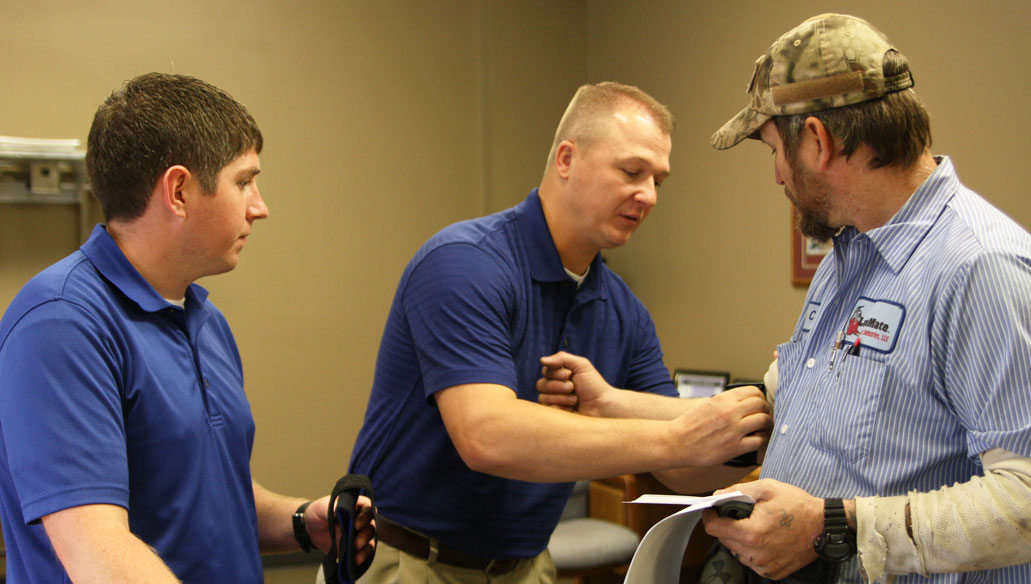Industrial Services – Occupational Medicine
Physical Therapy and Sports Rehab of Hastings offers Occupational Services to help Nebraska employers reduce their Workers’ Compensation injuries. These services include Ergonomic Evaluations, Work Site Evaluations, On-site Rehabilitation, Return to Duty Evaluations, Drug and Alcohol Testing. Along with these services, PTSR proudly offers the Physical Capacity Profile® Testing System.
PHYSICAL CAPACITY PROFILE® TESTING SYSTEM
Post-Hire Testing

What is the Physical Capacity Profile® Testing System?
The Physical Capacity Profile® Testing System is a comprehensive testing procedure developed by an orthopedic physician with a database composed of more than 20,000 tests. The testing system is designed to accommodate individuals with handicaps.
When employees are physically matched to the job they are substantially less likely to be injured. How can we determine if a person is physically matched for a particular job? Many companies require a post-hire physical, but the typical physical does not adequately document musculoskeletal imbalances which could lead to injuries. The standard physician physical is simply not cost-effective or protective in reducing future Workers’ Compensation claims.
It helps the employer determine an employee’s physical capabilities and limitations before they start work. It provides quantitative data that assists in the placement process while meeting all regulatory compliance criteria.
The components of the Physical Capacity Profile® include:
|
|
Legally Defensible
The system is a validated process that is in compliance with ADA (Americans with Disabilities Act), EEOC (Equal Employment Opportunity Commission), and HIPAA (Health Insurance Portability and Accountability Act) and has successfully undergone audits.
Advantages
Rapid delivery of tests results allowing management quick placement of newly hired employees. The data is electronically captured to avoid human error over multiple tests. This allows matching of physical capacity to job demands based on essential functions of the job.
Disability Ratings
The Physical Capacity Profile® provides medical documentation of impairment in accordance with the American Medical Association (AMA) guides (4th Edition). The baseline information is critical in managing future workers compensation claims with each state’s workers compensation statutes. When applicable, the results are presented in accordance with AMA guidelines.
Cost Justifications
By reducing the risk of injury, the number of workers compensation claims and related premiums are also reduced. Cost conscious management knows that fewer lost work days due to workers compensation claims will result in increased productivity and profits.
How Do We Get Started?
A job description documenting the essential physical requirements of the job is required. The job requirements are placed into one of the Department of Labor’s strength classifications (these are below). This information is then compared to the results obtained during the Physical Capacity Profile® test to assist in the placement of employees.
Strength Requirement Classification Criteria (published by U.S. Department of Labor- 4th Edition Revised 1991)
Level 1 – Sedentary Work
Exerting up to 10 pounds of force occasionally, and/or a negligible amount of force frequently. Involves sitting most of time, but may involve walking or standing.
Level 2 – Light Work
Exerting up to 20 pounds of force occasionally, and/or up to 10 pounds of force frequently. Requires walking or standing to a significant degree, or requires sitting most of the time but entails pushing and/or pulling of arm or leg controls.
Level 3 – Medium Work
Exerting 20 to 50 pounds of force occasionally, and/or 10 to 25 pounds of force frequently, and/or greater than negligible up to 10 pounds of force constantly.
Level 4 – Heavy Work
Exerting 50 to 100 pounds of force occasionally, and/or 25 to 50 pounds of force frequently, and/or 10 to 20 pounds of force constantly.
Level 5 – Very Heavy Work
Exerting in excess of 100 pounds of force occasionally, and/or in excess of 50 pounds of force frequently, and/or in excess of 20 pounds of force constantly.
Summary
The Physical Capacity Profile® testing system helps occupational and human resource professionals place employees in the appropriate job to minimize the potential of injury while documenting each employee’s physical capacity and impairments.
Below are photos of some of the physical capacities that the Physical Capacity Profile® measures:
ERGONOMIC EVALUATION
Ergonomics is the “science of work” finding a perfect fit between the job and the employee. There are two types of solutions: one is to modify the job design and two is to change the way the worker peforms the job. This focuses on the safe and effective fit between the worker, the job and the environment. The most important factor of ergonomics is to improve employee safety and health. When a proper “fit” is attained, then efficiency and productivity are improved thus reducing the risk of injury, the number and severity of work related musculoskeletal disorders as well as lost time from work.
Physical Therapy & Sports Rehab of Hastings provides comprehensive ergonomic evaluations customized to meet the business needs of your company. We specialize in helping you reduce your employee’s injuries associated with repetitive stress and cumulative trauma disorders while producing a healthy work atmosphere.
WORK SITE EVALUATION
PTSR provides work site evaluations in which a therapist will go directly to the place of employment and observe the worker performing his/her job duties. This allows the therapist to identify any potential job hazards and offer suggstions to help the employee perform his/her job more comfortably and easily. Work station modifications for improved ergonomics and safety will be recommended as needed.
ON-SITE REHABILITATION
PTSR offers on-site rehabliitation to meet each individual company’s needs. A therapist will come out to your business and provide the necessary treatment for your employee’s needs. Treatment may or may not include the following: ergonomic assessment, musculoskeletal evaluations and work site evaluations. Employees may also be treated on-site via instruction on exercsies that can be done on the job as well as at home and instruction on proper body postures and mechanics while performing their job. The employees may also be provided with modalities including electrical stimulation, ultrasound, phonophoresis as well as heat and cold treatments as needed.
Proper bracing and/or splinting can also be recommended for the individual worker’s condition. The goal of on-site rehabliitation is to treat at your business location preventing down time which occurs when employees are forced to drive to and from their therapy appointments . This type of treatment is extremely beneficial in preventing mild injuries from becoming compensable causing lost work for the employee and lost revenue for the company.
RETURN TO DUTY EVALUATION
Physical Therapy & Sports Rehab of Hastings offers a more comprehensive testing procedure to assess an employee’s ability to return to work after an injury.
The Return to Duty evaluation utilizes 28 strength tests plus on-going monitoring of the heart rate and pain complaints throughout the exam. This additional information provides insight into the validity of the employee’s efforts and further defines areas of weaknesses that may be used to alter the work level and/or modify the focus of rehabilitation.
PTSR’s goal is to assist the medical provider, employer and employee with objective information regarding an employee’s ability to return to their job safely.
FUNCTIONAL CAPACITY EVALUATION
Functional Capacity Evaluation or “FCE” is an intensive short-term evaluation that focuses on physical abilities related to musculoskeletal strength, endurance, speed and flexibility. This evaluation gathers data used to determine the client’s consistency of effort, appropriateness of symptoms and employability. The FCE may also be know as a Work Capacity Evaluation.
FCE’s are frequently requested by employers and worker’s compensation to help determine a client’s ability for return to work. The results of the evaluation may suggest that the client is able to return to work or may recommend further rehabilitation services prior to return to work. If return to work is not likely, then alternative job placement may occur as a result of the evaluation.
FCE’s are also requested by individuals or attorneys representing individuals applying for disability. The results of the evaluation may be used by a physician to help determine a client’s level of disability. Any other healthcare professional or individual with a health problem may request an FCE to help guide treatment and suggest future course of action.
Physical Therapy & Sports Rehab of Hastings (PTSR) offers a number of options regarding FCE’s to better meet the needs of the client being treated. We offer the following:
1 Day (4 hour) Test
2 Day (8 hour) Test
Upper Extremity (UE) Specific Test
Lower Extremity (LE) Specific Test
Other Specific Test, as Requested
DRUG & ALCOHOL SCREENING
Physical Therapy and Sports Rehab of Hastings is a qualified site for breath / alcohol testing and urine collection meeting all requirements for the Department of Transportation (DOT). Our hours of collection are from 6:00 A.M. to 5:00 P.M., Monday through Friday. These hours lead to an ease in scheduling tests for pre-employment / post-hire, random testing, reasonable suspicion, post-accident, return-to-duty or follow-up. We have multiple staff members that are trained in the collection and testing process in order to improve the efficiency of time for both the employee and employer.



